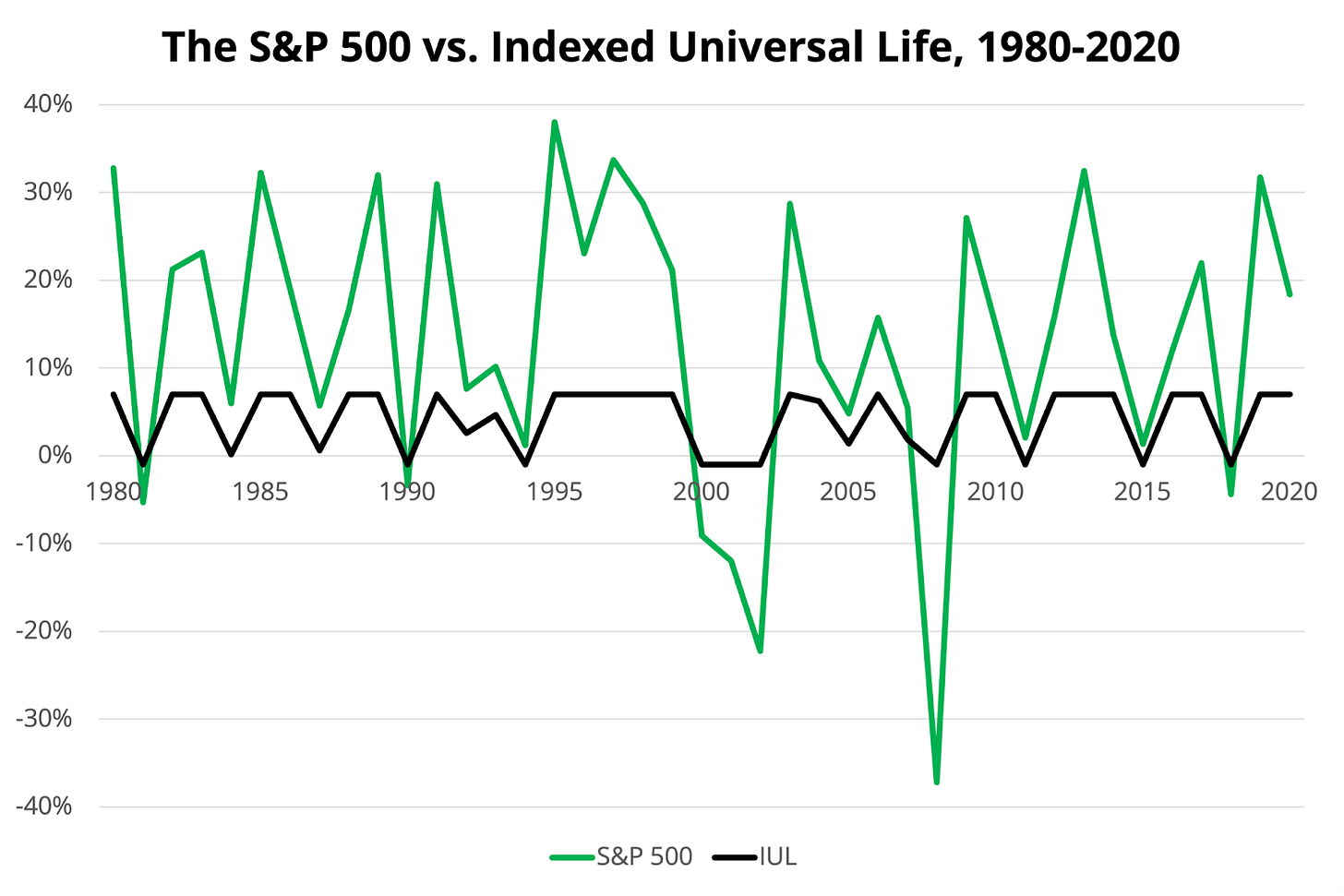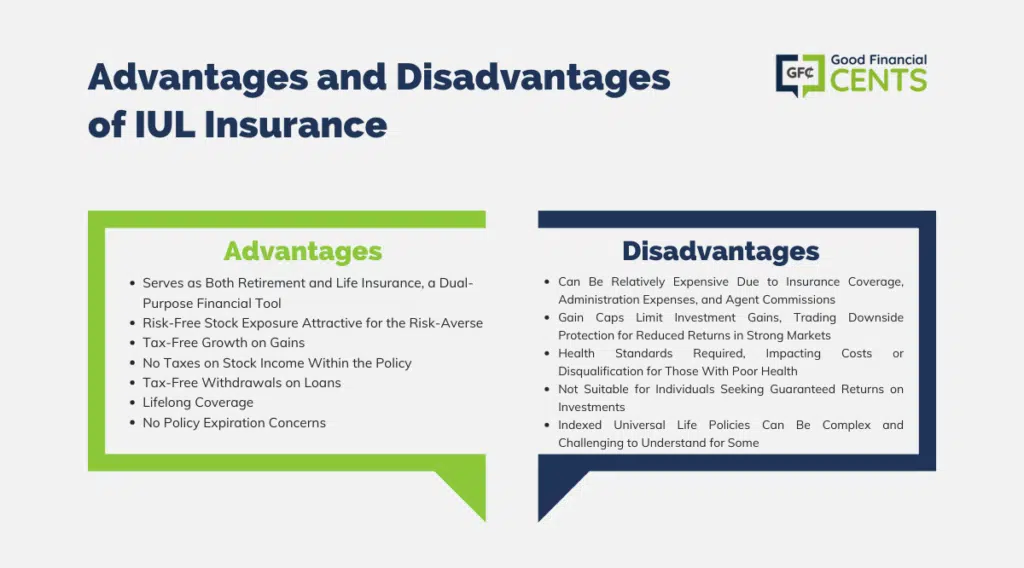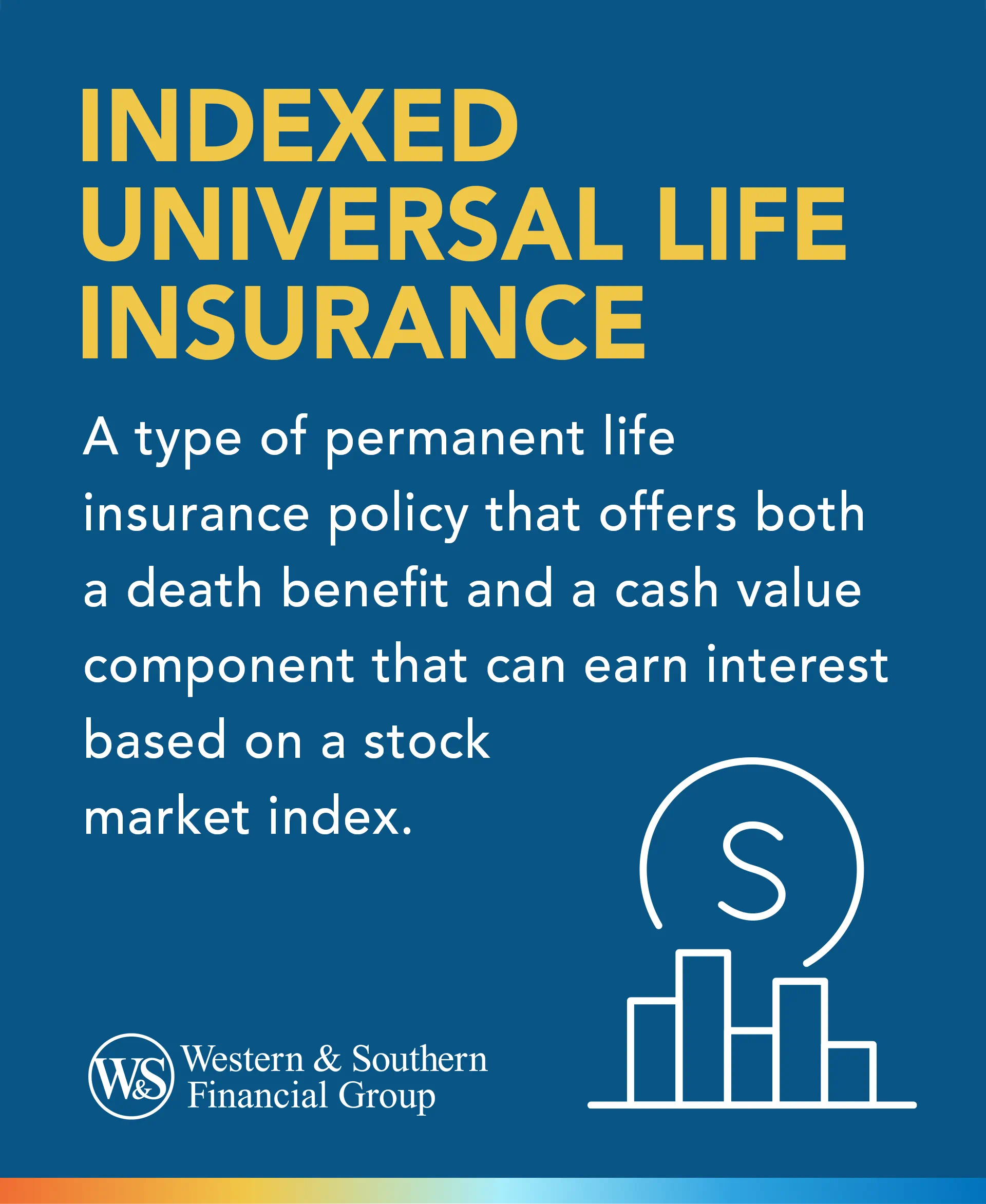All Categories
Featured
Table of Contents
1), typically in an attempt to defeat their classification averages. This is a straw man argument, and one IUL people like to make. Do they compare the IUL to something like the Lead Total Securities Market Fund Admiral Show no lots, a cost proportion (ER) of 5 basis factors, a turnover ratio of 4.3%, and an extraordinary tax-efficient document of distributions? No, they contrast it to some awful proactively managed fund with an 8% lots, a 2% EMERGENCY ROOM, an 80% turnover proportion, and an awful record of short-term capital gain distributions.
Mutual funds frequently make yearly taxable distributions to fund proprietors, even when the value of their fund has decreased in value. Shared funds not only call for earnings coverage (and the resulting annual tax) when the mutual fund is increasing in worth, however can additionally enforce earnings taxes in a year when the fund has actually decreased in worth.
You can tax-manage the fund, collecting losses and gains in order to reduce taxed distributions to the financiers, but that isn't somehow going to transform the reported return of the fund. The ownership of shared funds might require the common fund proprietor to pay projected taxes (no lapse life insurance).
:max_bytes(150000):strip_icc()/pros-cons-indexed-universal-life-insurance.asp_v1-e119226901bc464593a496c003551ea0.png)
IULs are simple to position so that, at the proprietor's death, the recipient is not subject to either revenue or inheritance tax. The very same tax reduction methods do not work nearly as well with shared funds. There are many, commonly expensive, tax obligation traps associated with the timed acquiring and marketing of shared fund shares, catches that do not use to indexed life insurance policy.
Opportunities aren't very high that you're mosting likely to undergo the AMT due to your mutual fund circulations if you aren't without them. The rest of this one is half-truths at finest. For example, while it holds true that there is no revenue tax obligation as a result of your beneficiaries when they inherit the proceeds of your IUL policy, it is additionally real that there is no revenue tax obligation because of your heirs when they acquire a common fund in a taxed account from you.
Cost Of Universal Life Insurance
There are far better means to avoid estate tax obligation concerns than getting investments with low returns. Common funds may trigger revenue tax of Social Safety advantages.

The development within the IUL is tax-deferred and might be taken as free of tax income through financings. The policy proprietor (vs. the mutual fund supervisor) is in control of his/her reportable income, therefore enabling them to reduce or also remove the taxation of their Social Protection benefits. This is excellent.
Here's an additional marginal issue. It's real if you purchase a mutual fund for say $10 per share just prior to the circulation day, and it disperses a $0.50 distribution, you are after that mosting likely to owe taxes (most likely 7-10 cents per share) regardless of the reality that you haven't yet had any type of gains.
In the end, it's actually concerning the after-tax return, not just how much you pay in tax obligations. You're also possibly going to have more cash after paying those tax obligations. The record-keeping requirements for possessing common funds are considerably a lot more complicated.
With an IUL, one's records are kept by the insurance provider, duplicates of annual statements are sent by mail to the proprietor, and distributions (if any type of) are completed and reported at year end. This one is additionally kind of silly. Naturally you need to keep your tax obligation records in instance of an audit.
Index Universal Life Insurance Uk
All you have to do is shove the paper into your tax obligation folder when it turns up in the mail. Rarely a factor to acquire life insurance. It resembles this guy has never purchased a taxed account or something. Common funds are typically part of a decedent's probated estate.
On top of that, they go through the hold-ups and expenses of probate. The proceeds of the IUL policy, on the other hand, is constantly a non-probate distribution that passes beyond probate straight to one's named beneficiaries, and is for that reason not subject to one's posthumous financial institutions, unwanted public disclosure, or similar hold-ups and prices.
Medicaid incompetency and lifetime earnings. An IUL can provide their owners with a stream of earnings for their whole lifetime, no matter of just how long they live.

This is advantageous when organizing one's affairs, and converting properties to income before a retirement home arrest. Shared funds can not be transformed in a comparable manner, and are generally considered countable Medicaid possessions. This is one more foolish one promoting that bad individuals (you understand, the ones that require Medicaid, a government program for the bad, to pay for their nursing home) ought to make use of IUL instead of mutual funds.
Universal Live
And life insurance policy looks horrible when compared fairly versus a retirement account. Second, people that have cash to buy IUL over and past their pension are going to have to be horrible at managing money in order to ever before receive Medicaid to pay for their retirement home costs.
Chronic and terminal ailment cyclist. All policies will allow a proprietor's simple access to money from their policy, usually waiving any abandonment penalties when such people experience a significant health problem, need at-home treatment, or come to be constrained to a nursing home. Mutual funds do not provide a similar waiver when contingent deferred sales costs still relate to a mutual fund account whose proprietor needs to offer some shares to money the expenses of such a remain.
Adjustable Premium Life Insurance
You get to pay even more for that benefit (rider) with an insurance coverage policy. What a terrific bargain! Indexed universal life insurance coverage provides survivor benefit to the recipients of the IUL owners, and neither the proprietor neither the beneficiary can ever before shed cash due to a down market. Mutual funds give no such assurances or death advantages of any kind of kind.
Currently, ask yourself, do you in fact require or want a fatality advantage? I certainly don't need one after I get to financial self-reliance. Do I want one? I suppose if it were low-cost enough. Of training course, it isn't economical. On standard, a purchaser of life insurance coverage spends for truth price of the life insurance coverage benefit, plus the prices of the policy, plus the revenues of the insurer.
Iul Life Insurance Vs Whole Life
I'm not completely sure why Mr. Morais included the entire "you can not lose money" once more here as it was covered rather well in # 1. He just intended to duplicate the most effective selling factor for these things I mean. Again, you do not shed small bucks, however you can shed genuine bucks, along with face serious chance price as a result of low returns.

An indexed global life insurance policy policy owner may exchange their policy for a totally different policy without activating income taxes. A mutual fund proprietor can stagnate funds from one common fund firm to another without marketing his shares at the former (hence activating a taxed event), and redeeming new shares at the latter, commonly based on sales costs at both.
While it is true that you can trade one insurance plan for another, the reason that individuals do this is that the initial one is such a dreadful plan that also after getting a brand-new one and undergoing the very early, unfavorable return years, you'll still come out in advance. If they were offered the right policy the very first time, they should not have any need to ever before trade it and undergo the very early, negative return years once more.
Latest Posts
Is An Iul A Good Investment
Universal Life Insurance Cash Surrender Value
Universal Guarantee Life Insurance